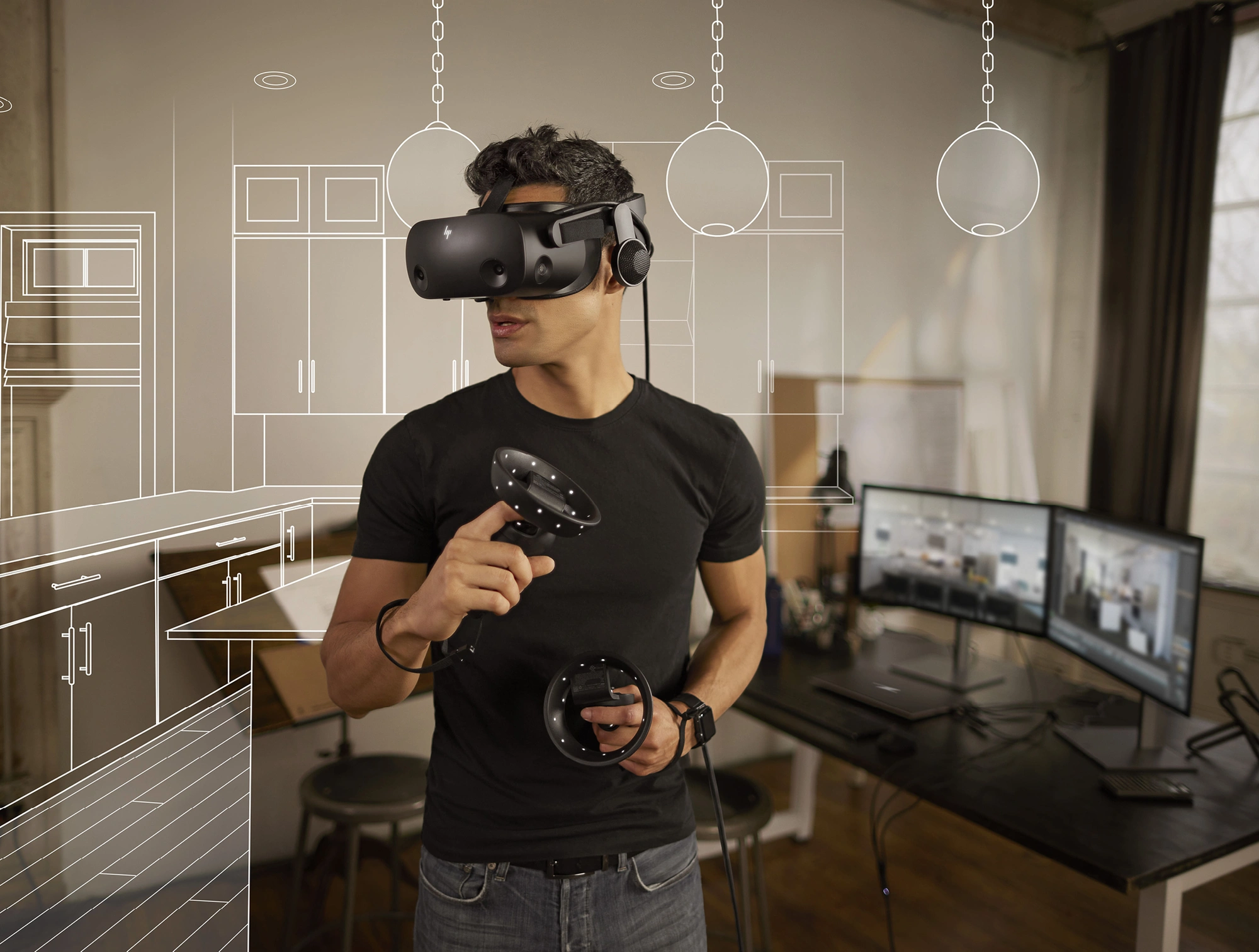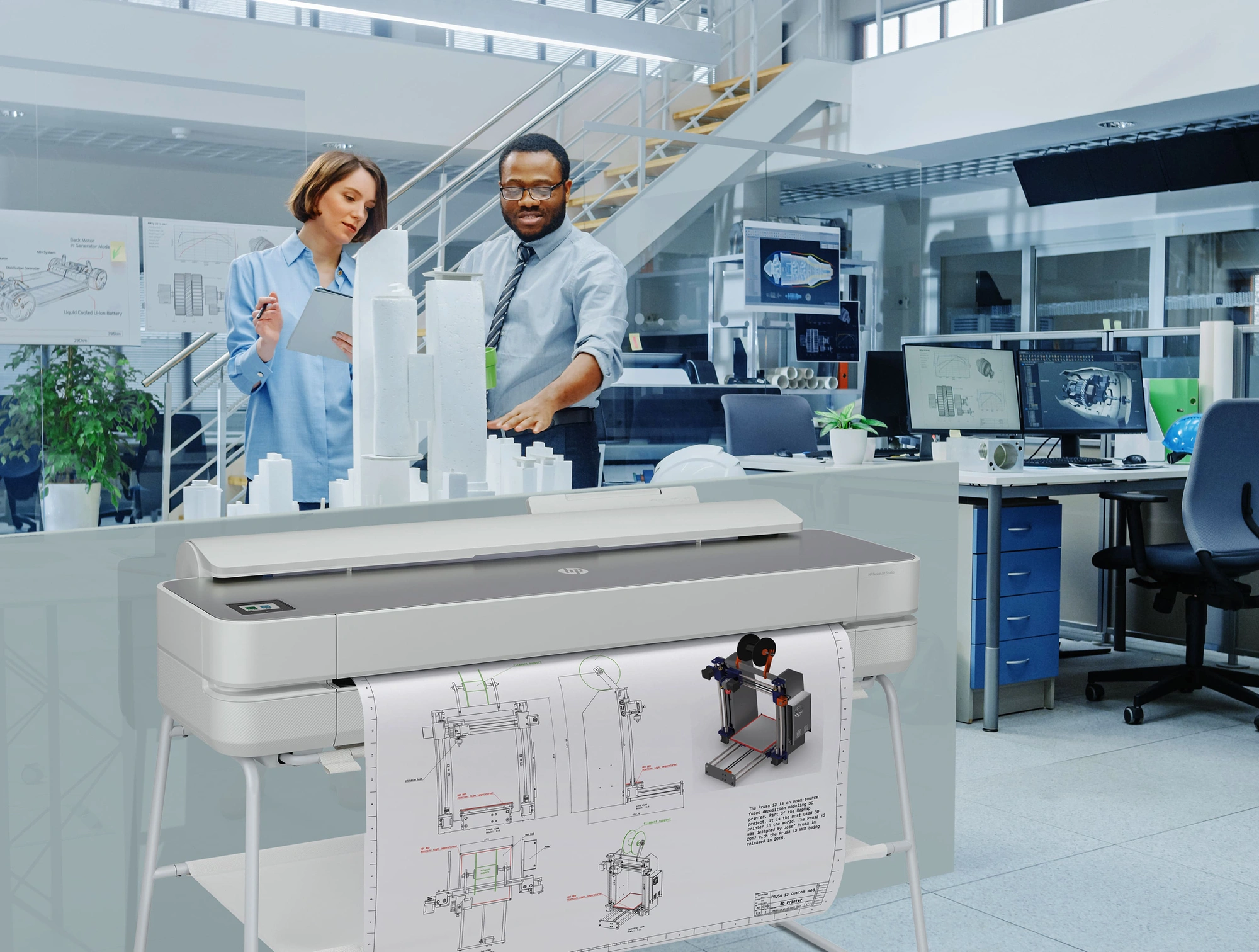Blog
Filter categoryHow digitization makes you more efficient on site

Construction Technology
|25 nov 2020
As Architects, Engineers, and Construction (AEC) professionals, you’re having to find new ways to collaborate, create, and be effective in these changing times.
AEC businesses require greater efficiency in these challenging times
How to increase efficiency through digitization

The need for greater design, innovation, and development speed
Many leading-edge AEC designers and engineers harness digitization to enhance design, development speed, and innovation– using Digital Twin technology or 3D to 7D virtual modeling, for example. From architecture to construction sequencing, these advances are fueling agile creativity and innovation by enabling immersive, cloud-connected collaboration and design.
The rise of Digital Twins
25 billion Internet of Things endpoints will be in use in 2021, linked to Digital Twins in billions of scenarios.iii
Digital Twin versatility
Digital Twins can augment operations and maintenance, help measure performance,iv and improve BIM workflows.v
Advanced modeling
By using 3D, 4D, 5D, 6D and 7D, virtual modeling enables greater speed and innovation in design and development.vi
How can digitization give greater development speed and innovation?
The AEC industry is on the cusp of dramatic change. Technologies like artificial intelligence and Machine Learning give AEC professionals like yourself, the chance to find innovative ways to design and build radical new buildings while keeping waste and resources down.
To help achieve greater speed and innovation, you could look at ways to develop and pioneer Digital Twin projects at your firm.
The first step is to imagine and shortlist a set of scenarios that could benefit from having a Digital Twin, then identify the process, and pilot a program.
Alternatively, you could adopt 3D to 7D modeling whereby construction sequencing is mapped against time, costs, sustainability, and management—these are advanced BIM
features that will give your business a competitive edge.
HP large format printing supports in these areas, by helping you to bring your ideas to life. Seeing distances and dimensions in detail helps you to plan more effectively, whether you use a Digital Twin, advanced BIM, or another type of virtual modeling to show plans, drawings, and sequences in unparalleled clarity.
What’s more, crisp and clear plans increase the efficiency of jobs by reducing errors.
AEC professionals are looking for intelligent tools that will save them time
Another way digitization is transforming life is through machine intelligence and data analytics. More intelligent tools that are easy to use and seamlessly integrate with your working life will bring efficiencies and time savings, and offer new design options.
AI and architecture
Artificial intelligence is transforming architecture through parametric designs, data processing efficiencies, and the ability to rapidly create whole buildings.vii
Analytics and data-driven BIM
One AEC firm achieved an 18% reduction in construction project costs through data-driven BIM with a 12-week reduction in projected completion time.viii

How to use digitization to make processes more intelligent
Consider how you could add intelligence to your digital processes by incorporating AI-based design. You could also use data-driven insights to create more detailed and sophisticated designs, iterations, and buildings. Also, think about enhancing your designs, workflows, and activities with dashboards, analytics, and data-driven BIM.
HP large format printing technology supports intelligent AEC processes through more efficient printing. Additionally, HP Smart Tracker software, integrated into the printing workflow, provides smart and sophisticated data tracking and reporting for distributed teams.
AEC practices need to better secure and protect their professionals
As more and more AEC professionals work from home, the cybersecurity threat to businesses has risen.
However, digitization can help secure you, your data, and your clients.
Threat to architecture 1 in 6 architecture firms has been a victim of a hacking, phishing, or ransomware cyber-attack.ix
Construction under attack 1 in 39 construction industry email users getstargeted by spear-phishing.x
Security technology
Technology is offering ways to improve security and safety through data encryption and user authentication, safety drones, exoskeletons, and wearable sensors.xi

How can digitization help to mitigate security and safety risks?
You can enhance your office security by increasing your use of encryption, authentication, secure collaboration and endpoint security for mobiles, workstations, printers, and scanners. You can also advance your organization’s, and clients’ safety and security through emerging solutions such as safety exoskeletons and wearable sensors in the construction phase.
In addition, HP plotter technology uses multi-level security to protect ideas and people. Plus, HP Smart Tracker software offers secure print job assignment, with optional password-protected categories that helps to prevent errors.

Seamless, safe, and sustainable
Digitization and advancements in technology offer a multiplicity of ways AEC professionals can become more productive, innovative, and secure in their home offices.
For AEC professionals like you to meet the grandest challenge on the planet—the redesign and rebuild of our built environment —you need the right equipment.
HP large format printers help you maintain productivity by making collaboration with your colleagues and partners easier, safer, and a bit more sustainable.
This is the key to helping you design and re-build the world more sustainably and effectively.
Footnotes
i https://www.constructionbusinessowner.com/technology/why-time-ripe-widespread-bim-adoption
ii https://www.researchandmarkets.com/reports/4845716/construction-robots-global-market-trajectory
iii https://www.gartner.com/en/documents/3840665/forecast-internet-of-things-endpoints-and-associated-ser
iv https://www.constructionweekonline.com/business/266292-how-the-digital-twin-is-reimaging-the-construction-sector
v https://aecmag.com/component/content/article/59-features/2104-can-digital-twins-improve-bim-workflows
vi https://www.theengineeringdesign.com/facts-about-4d-5d-and-6d-bim-technology-that-are-guaranteed-to-put-a-smileon-any-eac-professional/
vii https://www.lifewire.com/how-ai-is-changing-architecture-5090676
viii https://www.geospatialworld.net/blogs/how-can-big-data-analytics-add-value-to-bim/
ix https://www.architectsjournal.co.uk/news/aj-survey-one-in-six-practices-affected-by-cyber-attacks
x https://www.enr.com/articles/46832-construction-cybercrime-is-on-the-rise
xi https://www.enr.com/articles/46832-construction-cybercrime-is-on-the-rise
Explore plotter printers for your needs

HP DesignJet T850 36 (91.4 cm) Large-format Multifunction Printer
A0 Color DesignJet Large Format Printer, Perfect for Enterprise Print, copy, scan Dynamic Security enabled printer 25 sec/page on A1, 90 A1 prints per hour Sheet feed, roll feed, input tray (50 sheet capacity), media bin, automatic horizontal cutter Ethernet, USB, Wi-Fi HP Click
INR 336300.00INR 267000.00Buy now
HP DesignJet T250 24 (61 cm) Compact Large Format A1 Plotter Printer
A1 Colour HP DesignJet Large Format Printer, Perfect for Small Offices, Business & Enterprise Print 30 sec/page on A1, 76 A1 prints per hour Sheet feed, Roll feed, Automatic Horizontal Cutter USB, Ethernet, Wi-Fi HP Click, HP Smartapp
INR 111196.00INR 79900.00Buy now
HP DesignJet T650 36 (91.4 cm) Large Format A0 Plotter Printer
A0 Colour HP DesignJet Large Format Printer, Perfect for Small Offices, Business & Enterprise Print Sheet feed, Roll feed, Automatic Sheet Feeder, Media Bin, Automatic Horizontal Cutter USB, Ethernet, Wi-Fi HP Click, HP Smartapp
INR 201005.00INR 157000.00Buy now
You may also like
 News
NewsLatest innovations in printing technology: Top 5 uses of large format printers in the construction sector
 News
NewsBenefits of creating architecture landscape plans through large format printing
 Sustainability
SustainabilityThe key elements of a sustainable house design
 Cybersecurity
CybersecurityCybersecurity in construction: Current risks and how to protect your construction company from cybersecurity risks
 News
NewsComplete guide to types of construction drawing
 News
NewsBuilding and construction skills: Why upskilling is important
 Digital Tools
Digital ToolsSmart building automation systems and how they reduce costs
 Sustainability
SustainabilityUnderstanding cost of sustainable construction: Is it cheaper?
 Digital Tools
Digital ToolsBuilding automation trends: Why automation is crucial for AECs
 News
NewsTop advantages of smart buildings and building management systems
 Sustainability
SustainabilityGreen building benefits: Importance of eco-friendly construction
 Digital Tools
Digital Tools5 IoT applications in Architecture, Engineering, and Construction (AEC)
 Sustainability
SustainabilityTop 5 ways in which AECs are using green building materials in 2024
 News
NewsHow to build leadership as a toung architect
 Cybersecurity
CybersecurityFrom building management system to design: Securing smart buildings
 Digital Tools
Digital ToolsDigital upskilling for construction industry automation
 News
NewsFrom green building construction to digital offices: 4 predictions for post-Covid architecture
 Sustainability
SustainabilityDriving a zero-carbon future with sustainable construction materials
 Digital Tools
Digital ToolsBuilding for the new future: Trends in the AEC industry 2022
 Sustainability
SustainabilitySustainability in AEC: What does the future look like for it?